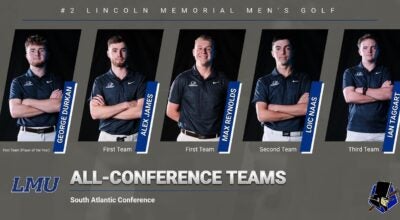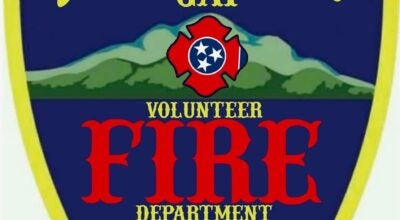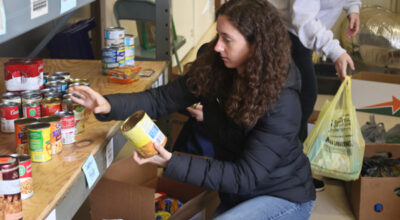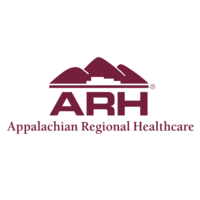Grief recovery is possible
Published 2:37 am Monday, July 15, 2019
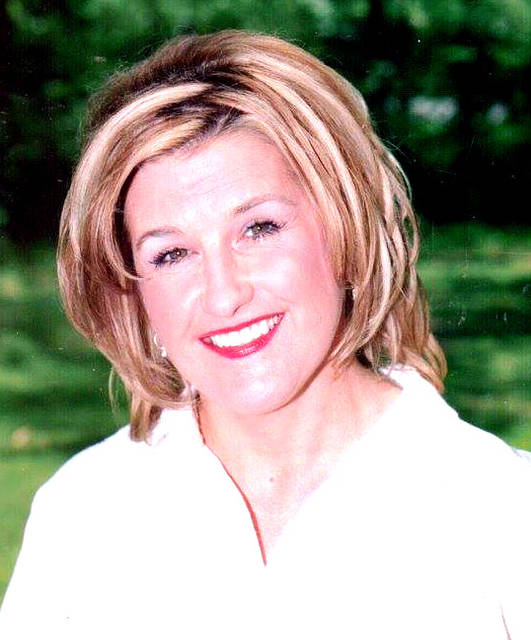
Photo by Harrogate Family Health Care
Debbie Poore, FNP, with Harrogate Family Health Care offers the first grief recovery program in the tri-state community.
|
Getting your Trinity Audio player ready...
|
There is no right way or wrong way to grieve, but there are healthy ways to deal with the grieving process.
Grief is a natural response to loss. It is the emotional suffering you feel when something or someone you love is taken away. Often that pain of loss can feel overwhelming and you may experience difficult and even unexpected emotions, from shock or anger to disbelief, guilt, and profound sadness.
For local Family Nurse Practitioner, Debbie Poore, those emotions are all too familiar.
“In 2013, I lost my son, Dustin,” Poore explained. “I didn’t fully recover from that until I, myself, went through this program and I thought it was invaluable to my recovery.”
According to Poore, there was no kind of grief recovery program available in Claiborne County or surrounding counties but after completing the program herself, she completed the process to be able to share the grief recovery program with the community.
“I was in Alabama when I chose to work through this program, and it helped my immeasurably more than any other program or type of recovery programs that were available in this community,” she said.
Poore had previously attended grief share and said it was wonderful but it wasn’t enough.
“I had attended that since 2011 when I lost my dad but after 2013 of losing a child, that was not enough,” she explained. “I feel this program is so much more than grief share.”
To be able to bring the program to the community, Poore had to go to Atlanta, Ga. to become a certified grief specialist.
“I am able to offer this to community groups or to individuals as one-on-one,” she said. “We go over a few situations that can cause a person to get stuck in the cycle of grief and what people do to cope with or mask with or hide or run from grief.”
According to Poore, she had some resentment going into the program because she thought her coping skills were above average because she is a nurse practitioner.
“I used several of them (coping skills) from a-to-z, and I realized those do not work in grief recovery,” she explained. “It doesn’t work from divorce, loss of a spouse, loss of a child, loss of a grandparent, there are several methods or things that are used to mask or recover from grief. Until you work through that grief you’re not going to get through it.”
She explains that in counseling other people about things to use instead of drugs and alcohol, she found that working through a profound unresolved grief that the pain must be faced.
“This program is not Christian-based. The authors are but, for me, it has to be Christian-based and that has helped me in my process. I am a Christian, and we do introduce that in the program that I teach but it is not a requirement,” she said. “I have been asked could I introduce this program to someone who is an atheist and a non-believer, and yes because I hope they can see Jesus in my eyes.”
She explains that it is important to her, but if a client or patient says they don’t want to hear about Christianity that the program will speak for itself and will work the miracle in recovery.
Once the group classes start, after two weeks, no new members are allowed to join.
“There is a lot of sharing and things and the groups become very close knit, so the group will be closed after the first three visits to allow someone to come in and say this is for me or this is not,” Poore explained. “You get used to your partners if there is partner work. (During) one-on-one sessions, you have two hours of my time from anywhere from five to eight weeks, and it is private sessions.”
She plans on doing visits with nursing homes, and even funeral directors have also reached out to her to come to speak to them or administrators. She explains that the sessions can be done with a company or she can do individualized sessions.
“I learned a lesson after 40-plus years in health care and seeing death and dying and realizing that is a part of life. But, when that’s your child, that’s hard to understand and comprehend until you really pull that Band-Aid off and work through that grief,” she said. “I’ve been told cry through the tears and sometimes it’s sob through the tears and scream at night. Each grief, just like each child is unique, each person is unique and that’s what I hope to bring to this program.”
She said that is the individuality of how do I get through this, how do you live.
“When my son died, I did not want to live,” she expressed. “It is work. It is grief work. It is just like rehabilitation of any kind. It’s a program and you work it but I hope that each person who chooses to do this grief recovery gets as much benefit as I have from it.”
She explained that it is for people who have lost someone through death, even divorce or even the loss of health, job loss, and even the loss of a pet.
“One of the veterinarians has asked me to bring the program and tell him what is involved because if you are a pet owner and you lose that dog that has lived with you…that in essence is your child,” she explained. “I still have Dustin’s dog, Clay, and he is 14 years old, so that loss is still there.”
If you would like to contact Poore for more information on Grief Recovery or schedule a session, call Harrogate Family Health Care, Inc. at 423-869-3700. She can also be contacted at Hands of Time Medi-Spa at 423-869-9800.


